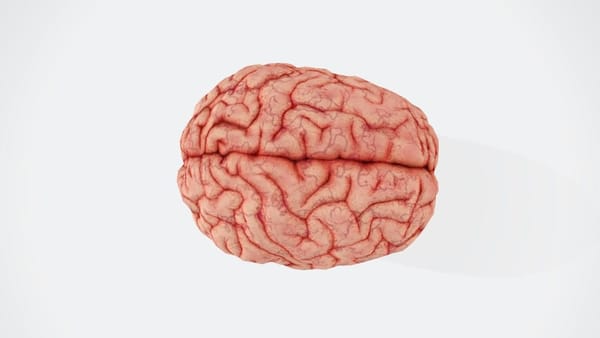Stress has become an almost ubiquitous experience. Mindfulness, an ancient practice with roots in Buddhist meditation, has gained significant attention in recent years as a powerful tool for stress reduction and overall well-being. This article explores the concept of mindfulness, its benefits for stress reduction, and practical techniques for incorporating mindfulness into daily life.
What is Mindfulness?
Mindfulness is the practice of purposely focusing your attention on the present moment and accepting it without judgment. Jon Kabat-Zinn, the founder of Mindfulness-Based Stress Reduction (MBSR), defines mindfulness as "paying attention in a particular way: on purpose, in the present moment, and nonjudgmentally" [1].
The Science Behind Mindfulness and Stress Reduction
Numerous studies have demonstrated the effectiveness of mindfulness in reducing stress. A meta-analysis published in the Journal of Psychosomatic Research found that mindfulness-based stress reduction programs were associated with significant reductions in perceived stress [2].
Research has shown that mindfulness practices can lead to:
- Decreased cortisol levels (the stress hormone)
- Reduced activity in the amygdala (the brain's "fight or flight" center)
- Increased gray matter density in brain regions associated with learning, memory, and emotion regulation [3]
Mindfulness Techniques for Stress Reduction
- Mindful Breathing: Focus on your breath, noticing the sensation of air moving in and out of your body. When your mind wanders, gently bring your attention back to your breath [4].
- Body Scan: Systematically focus your attention on different parts of your body, from your toes to the top of your head, noticing any sensations without judgment [5].
- Mindful Walking: Pay attention to the physical sensations of walking, such as the feeling of your feet touching the ground [6].
- Loving-Kindness Meditation: Practice directing feelings of compassion and kindness towards yourself and others [7].
- Mindful Eating: Pay full attention to the experience of eating, noticing the tastes, textures, and sensations of your food [8].
Incorporating Mindfulness into Daily Life
- Start small: Begin with just a few minutes of mindfulness practice each day and gradually increase the duration.
- Create reminders: Use everyday activities (like brushing your teeth or waiting in line) as cues to practice mindfulness.
- Use technology wisely: Consider using mindfulness apps or guided meditation recordings to support your practice.
- Be patient and kind to yourself: Mindfulness is a skill that develops over time with consistent practice.
Conclusion
Mastering mindfulness for stress reduction is a journey that requires patience, practice, and persistence. By incorporating mindfulness techniques into your daily routine, you can develop a powerful tool for managing stress and enhancing overall well-being. Remember, the goal is not to eliminate stress entirely but to change your relationship with it, fostering greater resilience and peace of mind.
Sources:
[1] Kabat-Zinn, J. (2003). Mindfulness-based interventions in context: Past, present, and future. Clinical Psychology: Science and Practice, 10(2), 144-156.
[2] Khoury, B., Sharma, M., Rush, S. E., & Fournier, C. (2015). Mindfulness-based stress reduction for healthy individuals: A meta-analysis. Journal of Psychosomatic Research, 78(6), 519-528.
[3] Hölzel, B. K., Carmody, J., Vangel, M., Congleton, C., Yerramsetti, S. M., Gard, T., & Lazar, S. W. (2011). Mindfulness practice leads to increases in regional brain gray matter density. Psychiatry Research: Neuroimaging, 191(1), 36-43.
[4] Arch, J. J., & Craske, M. G. (2006). Mechanisms of mindfulness: Emotion regulation following a focused breathing induction. Behaviour Research and Therapy, 44(12), 1849-1858.
[5] Carmody, J., & Baer, R. A. (2008). Relationships between mindfulness practice and levels of mindfulness, medical and psychological symptoms and well-being in a mindfulness-based stress reduction program. Journal of Behavioral Medicine, 31(1), 23-33.
[6] Gotink, R. A., Hermans, K. S., Geschwind, N., De Nooij, R., De Groot, W. T., & Speckens, A. E. (2016). Mindfulness and mood stimulate each other in an upward spiral: a mindful walking intervention using experience sampling. Mindfulness, 7(5), 1114-1122.
[7] Fredrickson, B. L., Cohn, M. A., Coffey, K. A., Pek, J., & Finkel, S. M. (2008). Open hearts build lives: positive emotions, induced through loving-kindness meditation, build consequential personal resources. Journal of Personality and Social Psychology, 95(5), 1045.
[8] Alberts, H. J., Thewissen, R., & Raes, L. (2012). Dealing with problematic eating behaviour. The effects of a mindfulness-based intervention on eating behaviour, food cravings, dichotomous thinking and body image concern. Appetite, 58(3), 847-851.












Member discussion